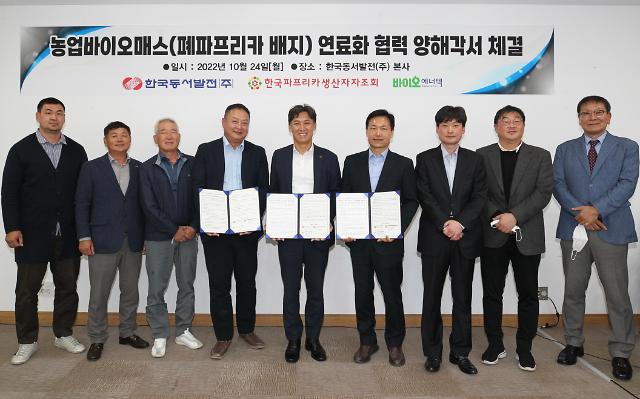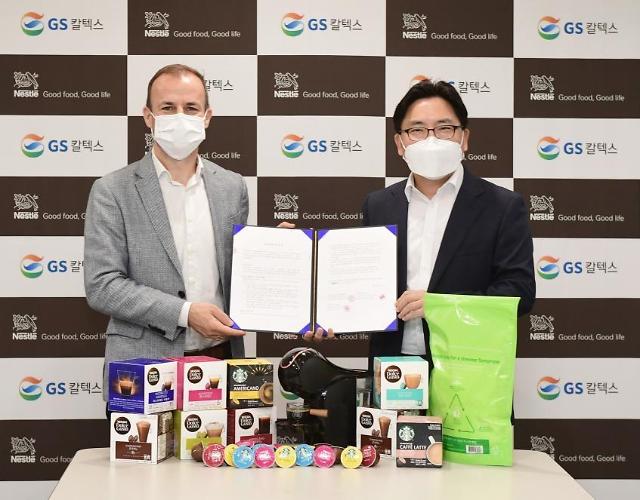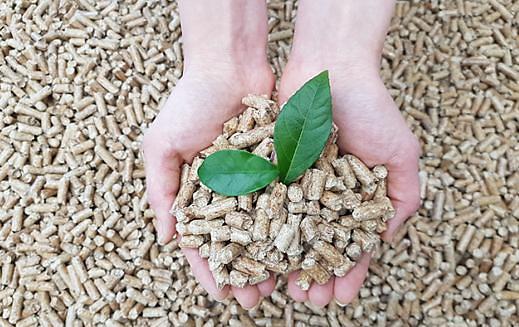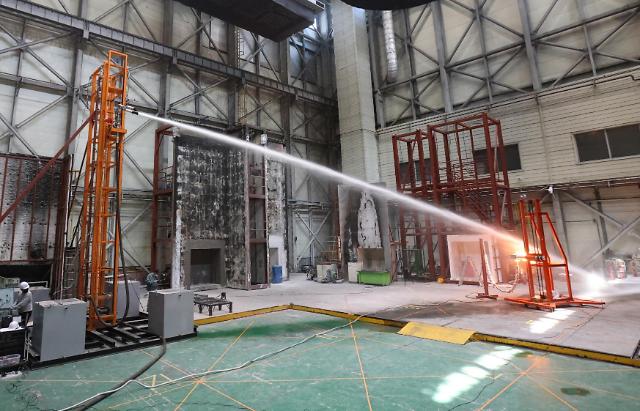[Courtesy of EWP]
Pellets are biofuels made from compressed organic matter or biomass. Wood pellets are the most common type of pellet fuel and are generally made from compacted sawdust and related industrial wastes. Other industrial waste sources include empty fruit bunches, palm kernel shells, coconut shells, and treetops and branches discarded during logging operations.
Jinenertech's subsidiary will produce pellets for Korea East-West Power Company (EWP), based on coco peat used for South Korean paprika farms as a culture medium. Coco peat, or known as coco pith, made from the husks of coconuts, is a sustainable material used as a growing medium or substrate for plants. It is ideal to be used as a growth medium for container-grown vegetables.
In an effort to reduce imports of wood pellets, the primary fuel of bioenergy mixed power generation, Jinenertech has already supplied pellet fuel using waste mushroom culture medium to EWP. "We will make efforts to revitalize the domestic biofuel industry and contribute to creating new jobs by establishing a virtuous cycle of biofuels based on waste paprika culture medium," EWP CEO Kim Yung-moon said in a statement on October 24.
Pellets are biofuels made from compressed organic matter or biomass. Wood pellets are the most common type of pellet fuel and are generally made from compacted sawdust and related industrial wastes. Other industrial waste sources include empty fruit bunches, palm kernel shells, coconut shells, and treetops and branches discarded during logging operations.
Domestic power generation companies have joined a government campaign to strengthen energy security by using domestic biomass fuel from 2025 instead of imported wood pellets. The three companies have used bio-mix fuel combustion by mixing fossil fuels exceeding 10 percent of the total calorific value.
The Seoul government has encouraged companies to adopt clean energy, as part of efforts to achieve zero-carbon by 2050. In June 2022, LG Chem partnered with GS EPS, a private power generation company, to establish a joint venture for the construction of a biomass power plant by 2025 at the southern industrial port of Yeosu to produce industrial steam and electricity with waste woods. GS EPS operates South Kora's first biomass power plants.
Copyright ⓒ Aju Press All rights reserved.





